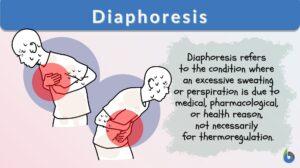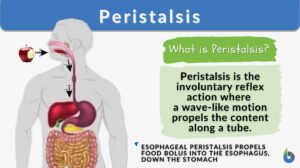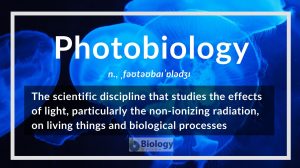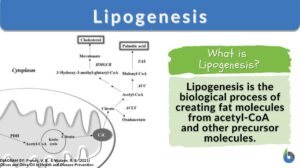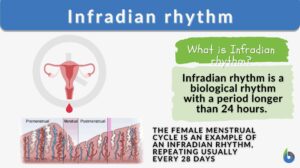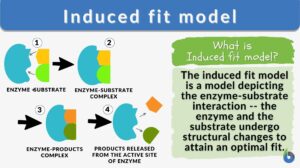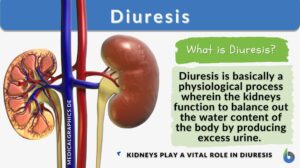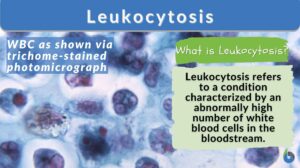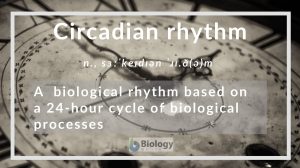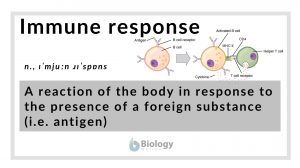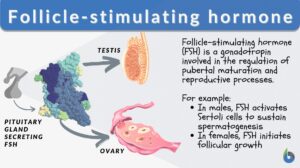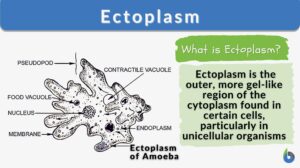Search Results for: induces
Human Reproduction
Terminology and Concepts Primary reproductive organs are called gonads - testes in the male and ovaries in the female.... Read More
Diaphoresis
What is Diaphoresis? Diaphoresis is referred to excessive or profuse perspiration or sweating which may be due to... Read More
Peristalsis
What is Peristalsis? Peristalsis is the series of involuntary, wave-like muscle movements in the cylindrical, hollow tube... Read More
photobiology
Photobiology Definition Photobiology, the biology of light, is a subdiscipline in biology. It focuses on the effects of... Read More
Hypomelanism
All the body cells of living organisms bear some color due to one or the other pigment molecule or complex. The pigment can... Read More
Chronobiology
Chronobiology Definition Chronobiology is a branch of biology that studies time-related phenomena (e.g., biological... Read More
Lipogenesis
Lipogenesis Definition Lipogenesis is the process of producing lipid or fat to store biochemical energy for later metabolic... Read More
Hyperosmotic
Hyperosmotic Definition What is hyperosmotic? The word hyperosmotic is derived from two Greek words: 'hyper', meaning... Read More
Infradian rhythm
What is the Infradian Rhythm? An infradian rhythm is a type of biological rhythm that lasts longer than 24 hours, with a... Read More
Salmonella typhimurium
Definition A gram-negative pathogenic bacterium associated in gastroenteritis in humans and other... Read More
Glycocalyx
What is the Glycocalyx? The glycocalyx is a polysaccharide-based gel-like, highly hydrous cellular thin layer, covering... Read More
Nuclear body
Definition noun plural: nuclear bodies nu·cle·ar bod‧y, ˈnjuː.kli.ər ˈbɒdi Any of the prominent non-membraned,... Read More
Induced fit model
Induced-Fit Model Definition The induced-fit model is a model for enzyme-substrate interaction to depict the dynamic... Read More
Autocrine signaling
Autocrine Signaling Definition What is autocrine signaling? Autocrine signaling is a type of cell signaling wherein a cell... Read More
Leukocytosis
What Is Leukocytosis? Leukocytosis is a condition wherein the number of White Blood Cells (WBCs) is increased above the... Read More
Principles of Hormonal Control Systems
Hormones are chemical messengers that enter the blood directly upon their secretion from endocrine glands. A single gland or... Read More
Dead Man Walking
Dead Man Walking: Wade Davis and the Secret of the Zombie Poison By Patrick D. Hahn Accepted on September 4, 2007 Twenty... Read More
Circadian rhythm
Circadian Rhythm Definition A circadian rhythm is an endogenously-driven biological rhythm with a period close to 24... Read More
Gratuitous inducer
Gratuitous inducer (Science: molecular biology) a gratuitous inducer is a molecule which is structurally similar to another... Read More
Hypertonic
Hypertonic Definition Hypertonic is a term used to describe an entity being in the state of hypertonicity, where there is a... Read More
Phagocytosis
Phagocytosis Definition Phagocytosis is a basic physiological cellular process wherein a cell ingests a solid particle... Read More
Hermaphrodite
We all know that typically living organisms are divided into two main categories of sex-based on their biological structure.... Read More
Immune response
Immune Response Definition An immune response is defined as the reaction of the body in response to the presence of a... Read More
Follicle-stimulating hormone
Follicle Stimulating Hormone Definition In the pituitary gland of the brain, gonadotropic hormones are released.... Read More

